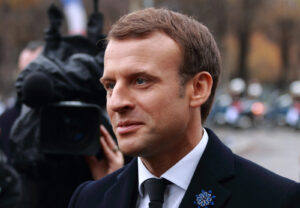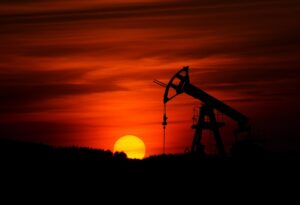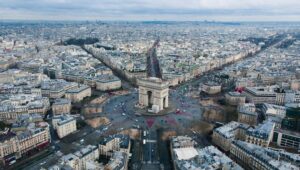“We are in a new time…The war will also prove to be a catastrophe for Russia” German Chancellor Olaf Scholz spoke these historic sentences in his government statement. An unprecedented moment in clarity from a German Chancellor, his 20-minute government statement on the Russian invasion of Ukraine in the hastily convened Bundestag, he spoke of “a turning point for Germany and Europe.”
A Rapid Change in Germany’s Foreign Policy
This statement was preceded by a dramatic change of pace in German foreign policy. Mere days ago, Nord Stream 2 was still a “private-sector” project for him, arms deliveries taboo and a SWIFT exclusion of Russia unthinkable. However, the learning curve of Scholz and the new German government rose appropriately and sharply: the Nord Stream 2 gas pipeline is now history, Germany is sending bazookas (1000) and missiles (500) – a paradigm shift – and Russia can only use SWIFT in a limited way. Airspace is also now closed to Russian aircraft. Unprecedented also the €100 billion extra package to top up the German government. These are all turning points in German post-war history and describe very well these extraordinary times in which we find ourselves.
Reactions Among Germany’s Major Political Parties
Even the largest opposition party, the CDU, is closing ranks with the federal government during the crisis. They support Scholz in the plans to exclude Russia from the SWIFT system and supply weapons. It also takes a self-critical look at its policy toward Russia over the past 30 years since the fall of communism. Opposition leader Friedrich Merz spoke of “a shambles of German and European foreign and security policy in recent years and decades.” In addition, opposition leaders called Russia’s president “brutal and ruthless.”
There is also a paradigm shift in the Left Party. If the party still showed a certain “understanding to Putin’s security concerns ” at the beginning of the crisis, it ultimately conceded this position. Putin had been “underestimated” in his brutality. However, as a pacifist party, the Left is against NATO rearmament.
Even the very “Russia-friendly” right-wing party AfD is against the intervention of Russia and wants to support the federal government in diplomacy to Russia. But, at the same time, they blame the German government and NATO for the situation and engage in historical distortion.
The former German Chancellor Angele Merkel also positioned herself against Putin on Saturday. “There is no justification whatsoever for this blatant breach of international law. I condemn it in the strongest possible terms,” Merkel told the German Press Agency.
Media Coverage and the German public’s response
The media echo in Germany is very clear on the invasion of Russia. It is clear beyond doubt that the aggression in this conflict comes from Russia, and the media broadcasts report in detail about the suffering of the civilian population. Reporters in Kyiv, Lviv, or Odesa give a realistic impression of the current situation.
German civil society is shocked. Almost 350,000 people with a migration background from Ukraine live in the Federal Republic. As a result, there were numerous demonstrations against the Russian intervention in many German cities over the weekend. The largest demonstration for peace was in Berlin, with 200,000 people on the streets. Currently, reception stations with gymnasiums are being prepared for the Ukrainian refugees. Individuals are also driving their own cars to the Polish border and offer free rides. One can see very broad solidarity for the Ukrainian population across Germany.




